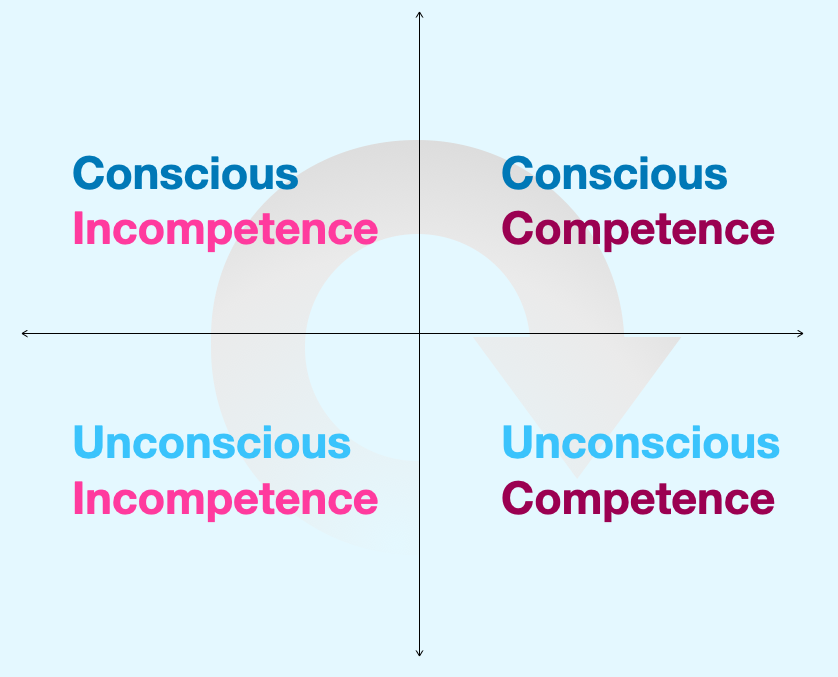A common challenge for the design leaders I support is identifying metrics. They know their team is having a positive impact, but struggle articulating it in any concrete way. They seek canonical, industry-standard metrics that prove UX/Design's value, but the reality is, no such metrics exist. The nature of UX/Design's impact is specific to the company, the audience, and the problem space under question.
I have found that, to have productive metrics discussions, it's crucial to appreciate organizational maturity. For example, it's hard to have a meaningful discussion of how UX/Design effects business outcomes if the company doesn't have a model of Customer Lifetime Value (CLTV) that maps customer behaviors and actions to a probability of financial return.
And when I think of maturity, I find myself returning to the four stages of competency model (shown below), which can be used as a generic maturity model in a wide array of contexts.

